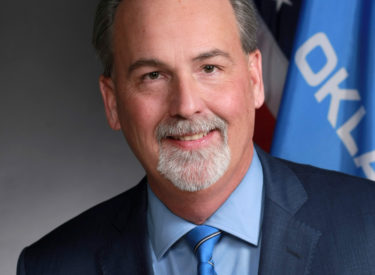Senate Update with Senator Bill Coleman
Beverly Cantrell - October 10, 2021 1:56 pm

Studying Criminal Justice Issues-
By Senator Bill Coleman-Senate District #10
The race is on to get through all the Senate interim studies before the Friday, Nov. 5 deadline. About half of the 70 studies have been heard so far. I previously mentioned what the Senate Business Committee had studied, and this week, I’d like to go over two of the studies held by the Public Safety Committee. I’ll discuss the others next time.
Tuesday, we learned about felony class systems in other states, the history of criminal sentencing reform in Oklahoma and how recent changes have affected our prison population. As you know, criminal justice reform has been one of my priorities since being in the Senate. But as we learned, even with all the major reforms approved in the last few years, more change is needed.
We heard from the Oklahoma County Public Defender’s office, the State Administrative Director of the Courts, the Attorney’s Generals office, the Department of Corrections (DOC) and other criminal justice advocates. It appears there’s a disconnect in our criminal justice system as Oklahoma has the third highest incarceration rate but ranks around 16th for prison admittance due to the state’s longer sentences. The Chief Public Defender of Oklahoma County said Oklahoma’s 85% Rule is what’s filling our prisons, and that most other states have abolished this law because it’s simply too stringent. This law requires that those convicted of certain crimes must serve at least 85% of their sentences before they can even be considered for parole. While State Question 780 and other reforms helped remove nonviolent first-time offenders from this rule, the experts say more must be done.
On Wednesday, we examined problems facing offenders as they re-enter society, with the two biggest obstacles being securing housing and employment. For many, as some of our speakers attested to, getting out of prison and having to be independent and start their life over is more frightening than going into or being in prison. They don’t want to have to return to a life of crime, but it can be a difficult transition. Fortunately, DOC wants to ensure that these individuals have the tools they need to successfully re-enter society and not return to prison. We learned about the J.H. Lilley Correctional Center (JLCC) Resource Fair where numerous community partners come together to share what resources they offer to help individuals successfully re-enter society, from getting a job to finding mental health support.
We also heard about Tulsa’s 1st Step Male Diversion Program, which helps stop the school to prison pipeline in Oklahoma for young men by providing necessary survival skills and services, facilitating the need for career opportunities, and instilling positive behavior change for lifetime success. This program saved Oklahoma taxpayers $3.3 million from 2017–2020 and delivered a 92% success rate, relieving our overcrowded prisons, reducing recidivism, and changing lives for the better.
David Collins, owner of the Phoenix Group in North Tulsa, shared his inspirational story. While incarcerated he dreamed of starting his own construction company, and with support from others he did it. He now employs 30 people and wants to help other former inmates by having them help build houses similar to those constructed by Habitat for Humanity.
We need more employers in Oklahoma willing to open their doors to former offenders and give them a second chance. Our state also needs to look at ways to provide more housing for those trying to restart their lives. These presentations gave me a lot to think about. I’d like to hear your thoughts, concerns, and suggestions as well regarding our criminal justice system.
In closing, I attended the Lieutenant Governor’s Summit on tourism in Ponca City Thursday. It was exciting to hear all the tremendous strides our tourism industry has made in recent years and will continue to do so.
You can contact me by calling (405) 521-5581 or emailing [email protected].
-30-
Every 10 years, the Oklahoma Legislature is constitutionally required to redraw legislative and congressional district boundaries using the latest U.S. Census data. For more information about the Oklahoma Senate’s redistricting process, visit www.oksenate.gov, or submit your redistricting questions at [email protected].



